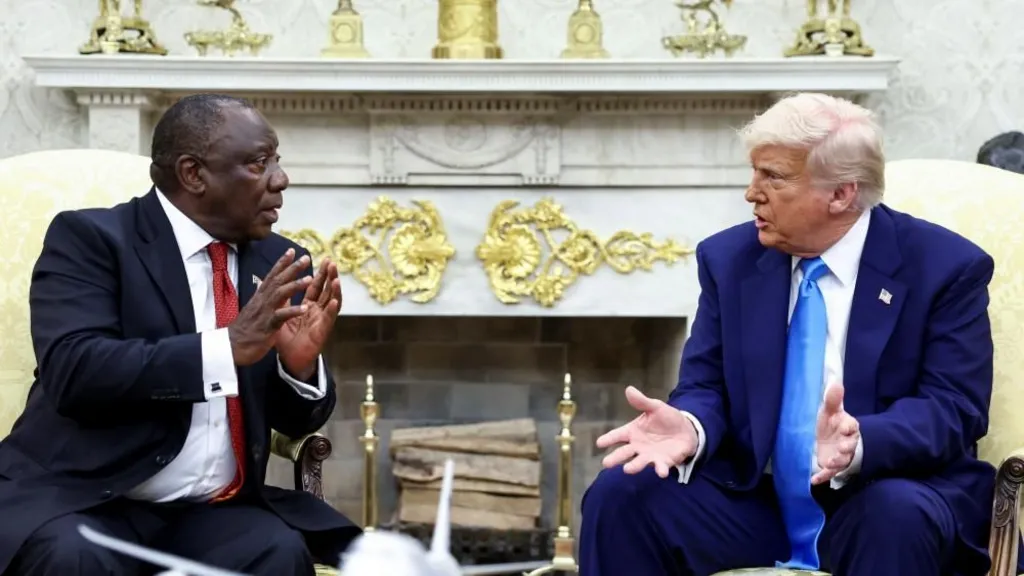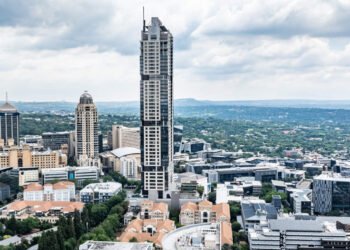South African President Cyril Ramaphosa landed in Calgary to a warm welcome from Canadian officials ahead of the high-stakes Group of Seven (G7) summit this week.
The gathering of the world’s major economies is taking place in the remote and scenic setting of Kananaskis, nestled among Canada’s Rocky Mountains.
The summit’s agenda was already overshadowed by surging geopolitical crises, particularly the escalating conflict between Israel and Iran, and the ongoing trade disputes spearheaded by U.S. President Donald Trump. These global tensions have added weight to the annual event, which aims to shape the course of international cooperation.
Among the expected highlights of the summit is a meeting between President Ramaphosa and President Trump — their first bilateral engagement since a tense encounter at the White House in May. During that controversial meeting, Trump challenged Ramaphosa with unsubstantiated claims of “genocide” against white South Africans, a confrontation that sparked diplomatic strain.

Ukrainian President Volodymyr Zelenskyy is also attending the summit, marking another closely watched moment. Zelenskyy’s upcoming meeting with Trump comes just months after their high-pressure Oval Office conversation, which revealed the volatility of negotiating with the American president.
Iran Conflict Casts Long Shadow
Amid these developments, the South African government is closely monitoring the rapidly intensifying military conflict between Israel and Iran. The Department of International Relations and Cooperation (DIRCO) issued a strong advisory urging South African citizens currently in Iran to contact the embassy in Tehran for registration and safety updates.
“It is important to note that South Africa’s support in the country is limited and that it could be assumed that no face-to-face consular assistance will be possible in an emergency. The South African government may not be able to help you if you get into difficulty, depending on your location.”
DIRCO
DIRCO emphasized that citizens must evaluate their safety and act accordingly, given the unpredictable security environment.
The conflict has placed renewed focus on South Africa’s historical relationship with Iran, which has shifted from hostility to cooperation. Under the apartheid regime, Iran — then governed by the Pahlavi monarchy — maintained ties with South Africa’s white-minority leadership. However, the 1979 Islamic Revolution redefined that relationship as Tehran severed relations with Pretoria and began supporting South Africa’s liberation efforts.
Diplomatic ties were officially reestablished after apartheid ended in 1994, and since then, the two nations have cultivated a strategic partnership spanning oil, telecommunications, and manufacturing. Iran emerged as a vital crude oil supplier to South Africa, and bilateral trade reached significant volumes before U.S.-led sanctions disrupted the flow. In 2007, South African exports to Iran totaled $1.5 billion, while imports, mainly oil, exceeded $20 billion.
Major South African companies such as Sasol and MTN have made deep inroads in Iran, with Sasol investing $900 million in a polymer production facility and MTN acquiring stakes in Iranian telecommunications.
While U.S. sanctions have complicated this partnership, South Africa has consistently voiced opposition to such measures. Officials have labeled them “irrational and illegal,” arguing that they stifle not just Iranian economic growth but also broader international trade. Pretoria remains vocal in its support of Iran’s right to peaceful nuclear energy development and has continued dialogue around expanded economic cooperation.
Recent diplomatic exchanges underscore the mutual interest in reviving and deepening this alliance once sanctions are lifted. A series of memoranda signed in fields such as agriculture, mineral processing, and financial services hint at the robust scope of future collaboration.
As President Ramaphosa engages in multilateral talks this week, the backdrop of rising global instability, particularly in the Middle East, will remain an unignorable undercurrent.























